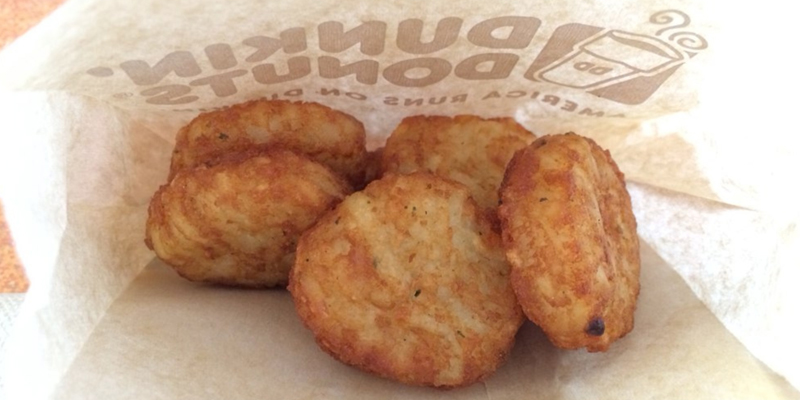
The past couple of years, I’ve become one of those Dunkin’ Donuts fanatics. It started with a 99 cent iced tea special and has led to a multi-year loyalty to their tea, along with a bagel many mornings. That said, having spent some time in their stores, I’ve found myself analyzing what happens behind the scenes, and I’ve come to the conclusion that they have made a big mistake by placing an increasing emphasis on a low-priced menu option with high overhead: Hash browns.
By this point I’ve seen many locations and how they pace. I’m in awe of the general efficiency of the one by my office in New York; in the a.m. they are a well-oiled machine the likes of which you don’t see very often. Even when new employees come on board they keep things rolling most of the time. The one by my apartment, on the other hand, is many times an exercise in patience as you wait 10 minutes or longer to be fourth in line. Comparing the two yields many questions, but that’s not the point of this piece.
What I have noticed is the moment hash browns enter the picture, all bets are off, no matter what the location. Hash browns cook in the same toaster as various other items, but appear to take twice as long. Plus there’s no easy way to scoop the now-hot items off the even hotter metal tray it’s cooked on, so you watch the food preparer delicately grabbing at the food, all for a 99 cent add-on. Meanwhile, other, faster orders wait. If multiple people have ordered them, you might as well curl up with a good book.
Why do fast food restaurants not contemplate food preparation times? I find myself routinely exhausted waiting at Burger King for an order even though I’m not sitting in a long line, and McDonald’s even admitted this year that their menu got too complicated. With fast casual restaurants like Chipotle surging, this seems like the wrong time to slow down the selling point: Fast food. If Panera Bread takes the same amount of time and is marginally more expensive but the food quality is a notch higher, why wouldn’t I go there?
It’s a symptom of a larger problem, but hoepfully Dunkin’ learns from struggling competitors and reins in time-consuming products. I now find myself skipping out on the food if I hear the word hash browns uttered by someone in front of me in line. Restaurants should learn from these sorts of things before minor nuisances become long-term problems when customers start to walk away.